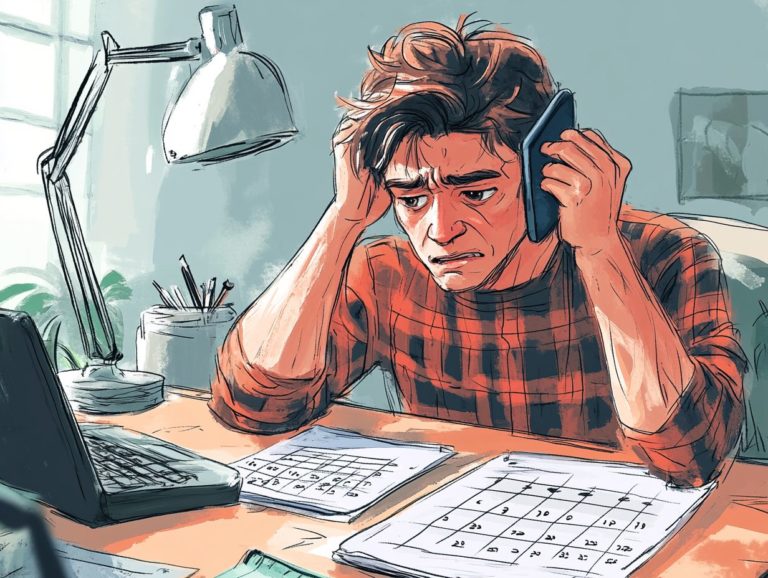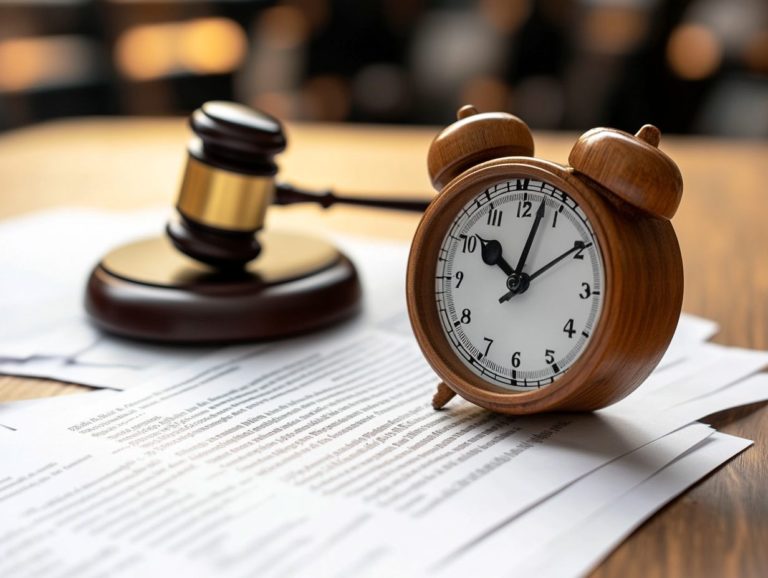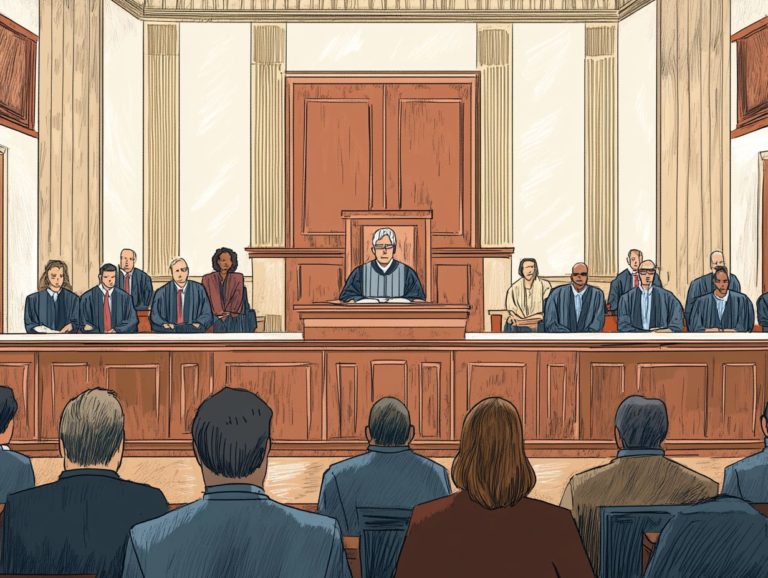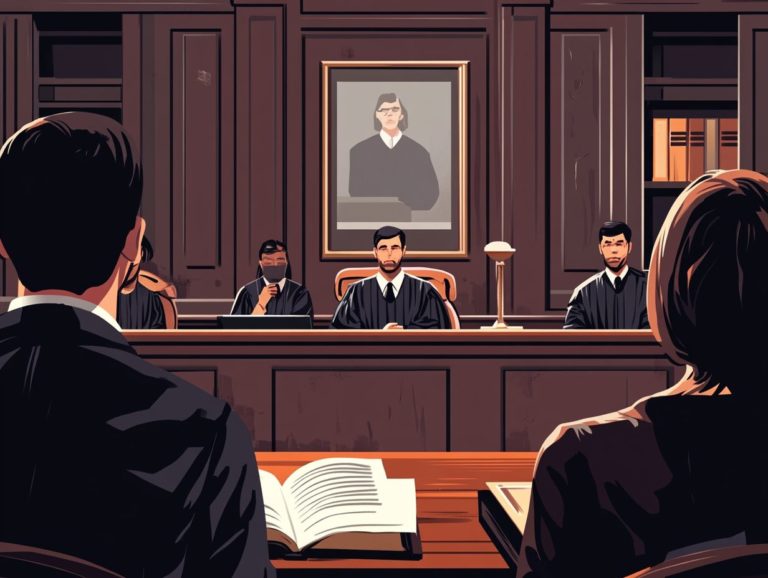What Are Your Rights When Stopped by Police?
Being stopped by the police can undoubtedly be a stressful experience. Understanding your rights is essential for navigating these situations with confidence.
This guide lays out crucial information about your rights during a police stop. It offers a clear, step-by-step approach to handle the encounter effectively. It also tackles common misconceptions and sheds light on addressing police misconduct while providing valuable resources for further support.
Empower yourself with knowledge, ensuring you are well-prepared for any situation that may arise.
Contents
- Key Takeaways:
- Understanding Your Rights When Stopped by Police
- What to Do When Stopped by Police
- Common Misconceptions About Police Stops
- How to Handle Police Misconduct
- Know Your Rights: Resources for Further Information
- Frequently Asked Questions
- What Are Your Rights When Stopped by Police?
- Can the police search me without my consent?
- Do I have the right to record the interaction with the police?
- What should I do if I feel my rights have been violated during a police stop?
- Can I refuse a breathalyzer or field sobriety test during a police stop?
- What should I do if I am arrested during a police stop?
Key Takeaways:
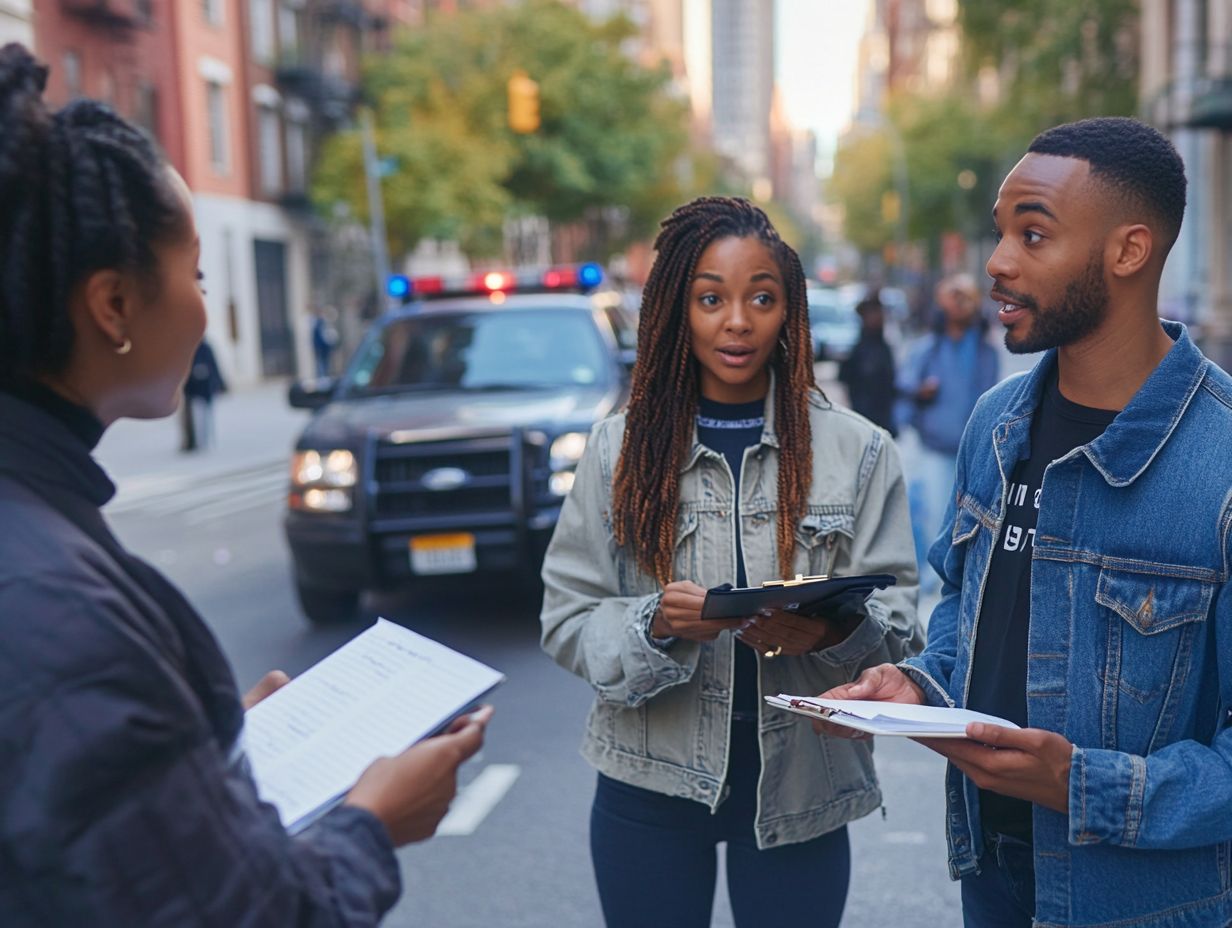
Know your rights when stopped by police. You have the right to remain silent, refuse searches that you agree to without a warrant, and ask if you are free to leave.
Follow a step-by-step guide when stopped by police. Keep your hands visible, remain calm, and ask for a lawyer.
Educate yourself about common misconceptions surrounding police stops. Debunk myths and understand the truth to protect your rights.
Understanding Your Rights When Stopped by Police
Understanding your rights during a police stop is essential for ensuring both your safety and legal protection. You possess specific rights aimed at shielding you from violations during such encounters.
Familiarizing yourself with these rights can help you maintain composure and assertiveness. This knowledge enables you to navigate the situation with confidence. Whether it is knowing how to interact with immigration agents or identifying what qualifies as police misconduct, being informed truly empowers you.
Have your attorney’s contact information readily available; it could prove invaluable in these critical moments.
What Are Your Rights?
Knowing your rights during a police encounter is vital for safeguarding against potential violations. It also ensures you navigate the situation safely and effectively.
Understanding your specific rights, such as the right to remain silent, protects you from being forced to admit wrongdoing. It is equally important to remember that if you request it, police officers are obligated to provide their badge number, which adds a level of accountability to the interaction.
Being aware of the legality surrounding searches that you agree to and the requirement of obtaining a search warrant before officers can enter private property can significantly affect the outcome of such encounters.
These rights are not mere legal formalities; they are essential protective measures designed to uphold your dignity and justice.
What to Do When Stopped by Police
When you are stopped by the police, it is crucial to understand exactly how to safeguard yourself and your rights. This knowledge enables you to respond appropriately while maintaining your composure.
Step-by-Step Guide
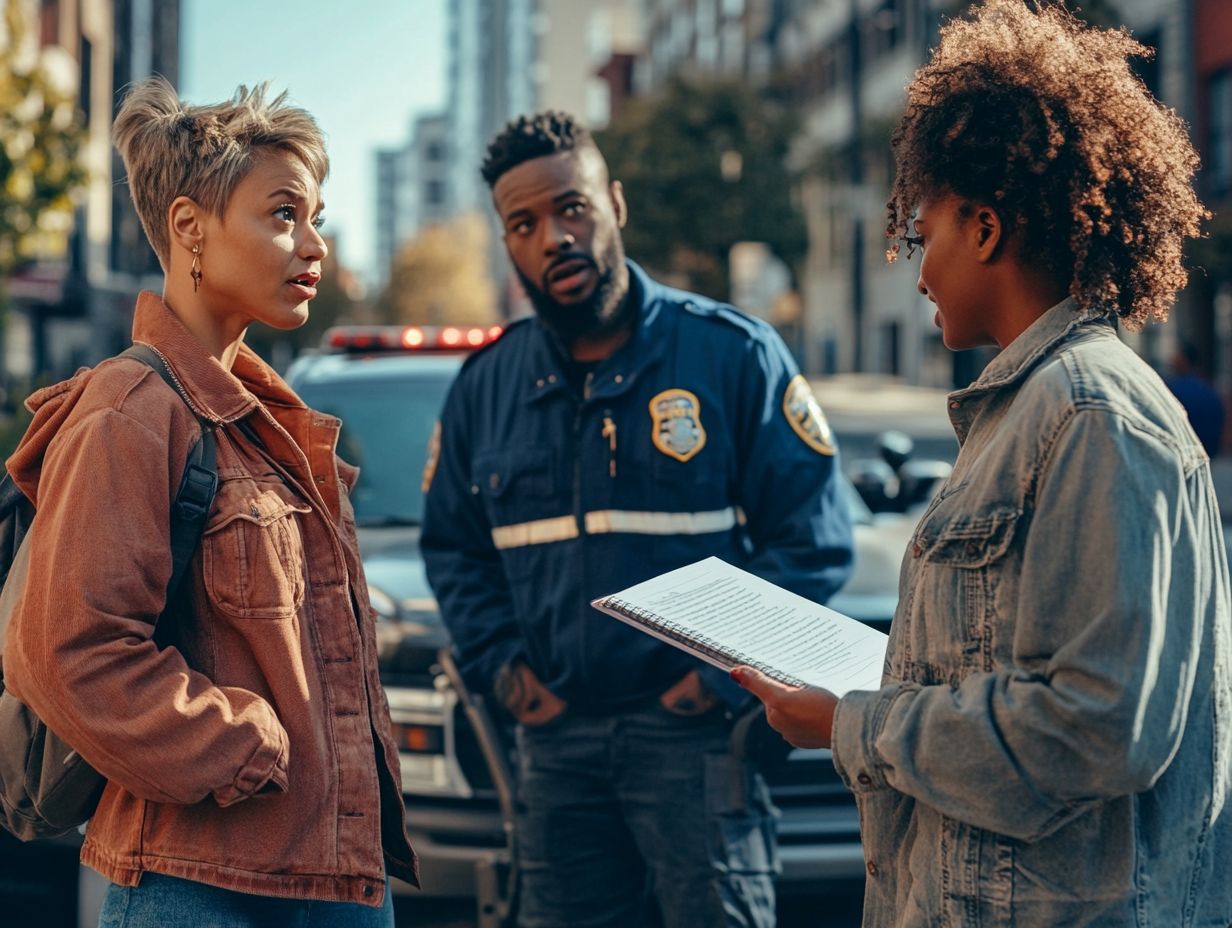
A step-by-step guide for what to do when you are stopped by the police involves knowing how to remain silent and using positive body language.
In such situations, maintaining a calm demeanor is vital. Your body language can significantly influence how the officer perceives you. First, keep your hands visible and avoid sudden movements that might be misinterpreted. Adopting a relaxed posture and making steady eye contact can convey respect and help ease the tension.
During the stop, remember that you have the right to remain silent. Clearly stating this right can establish important boundaries. If the interaction escalates or becomes uncomfortable, staying composed is essential.
Knowing your rights empowers you to handle this stressful experience confidently.
Common Misconceptions About Police Stops
Numerous misconceptions surround police stops. These often lead to confusion regarding your rights, obligations, and the appropriate actions to take during these encounters.
It is essential to navigate this landscape with clarity to ensure you respond effectively when the situation arises.
Act now! Share this information with friends and family to spread awareness about their rights.
Debunking Myths and Understanding the Truth
Debunking myths surrounding police stops requires understanding police procedures and learning how to respond to potential misconduct effectively.
Many individuals hold misconceptions about what to expect during a police encounter, especially regarding their rights and the actions to take if they feel mistreated.
For example, a common myth is that filing a complaint against an officer is daunting and yields minimal results. In reality, most police departments promote transparency and accountability actively.
It’s crucial to recognize that you can document your experience and report inappropriate behavior. Your feedback can lead to significant changes in practices and policies. Understanding these nuances enables you to engage confidently with law enforcement.
How to Handle Police Misconduct
Dealing with police misconduct requires a clear understanding of how to report it effectively while ensuring your rights are upheld throughout the process.
Reporting and Seeking Justice
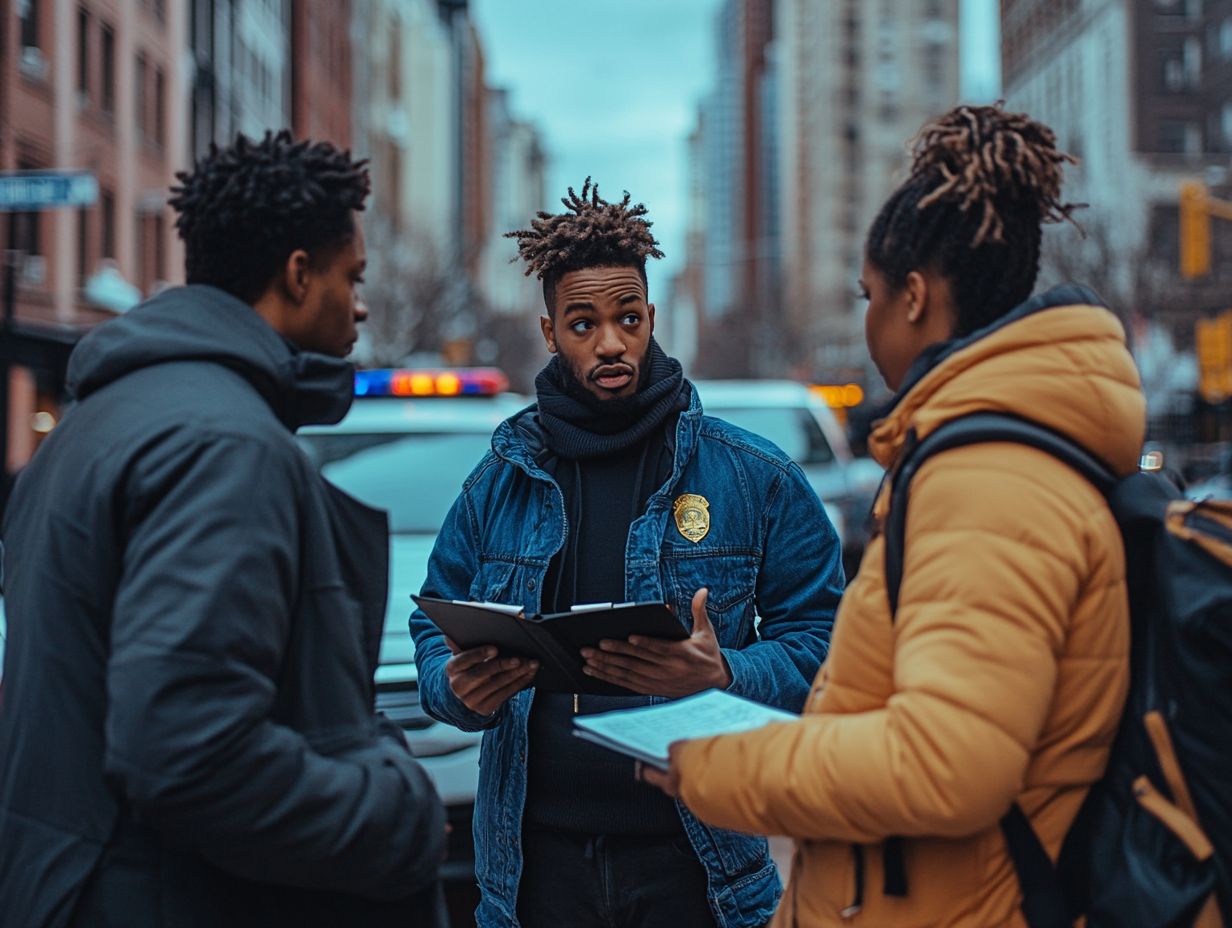
Reporting police misconduct and pursuing justice requires understanding available resources, including how to contact an attorney and file complaints with the appropriate authorities.
If you find yourself in such a situation, start by gathering relevant evidence dates, times, and witness accounts. These details can significantly strengthen your case.
Once you’ve compiled your information, reach out to attorneys specializing in civil rights or police misconduct. They can provide valuable insights into potential legal actions and pathways for recourse.
Community organizations can also help by offering guidance and support as you consider filing formal complaints with local police oversight bodies or human rights commissions. Engaging with these resources not only empowers you but also contributes to broader systemic changes.
Know Your Rights: Resources for Further Information
Understanding your rights is essential, and many resources are available to guide you.
These resources give you crucial insights into police rights, legal assistance, and various support avenues during encounters with law enforcement. Familiarizing yourself with this information can help you navigate these situations confidently.
Organizations and Hotlines for Legal Assistance
Organizations and hotlines dedicated to legal assistance are invaluable resources for understanding your rights when interacting with law enforcement.
Groups like the American Civil Liberties Union (ACLU) offer legal education and support for those facing police misconduct. Hotlines like the National Police Accountability Project provide immediate advice and resources to victims of police abuse.
By engaging in outreach programs within communities, these organizations play a vital role in raising awareness. They ensure you know where to turn for help and information when dealing with law enforcement.
Frequently Asked Questions
What Are Your Rights When Stopped by Police?
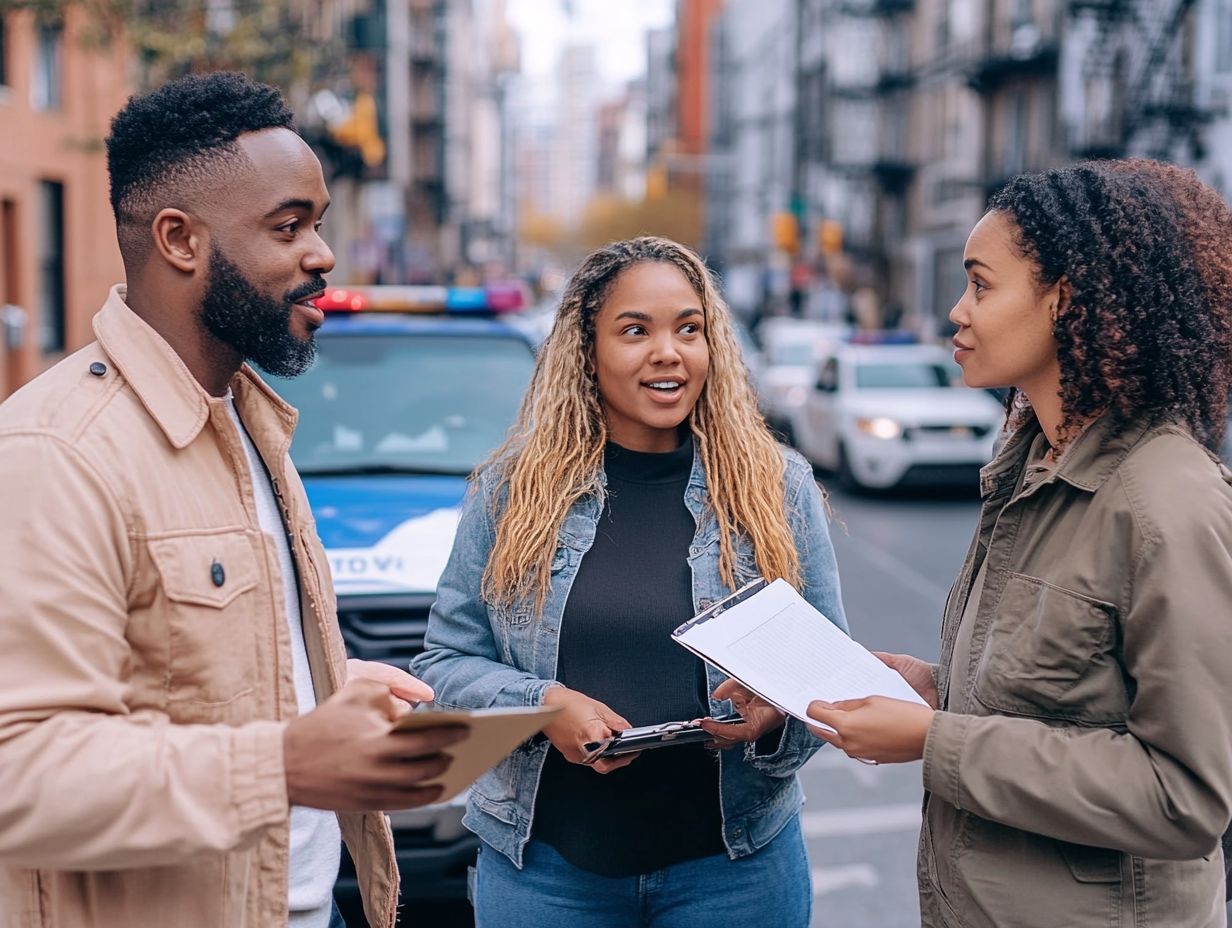
When stopped by the police, you have the right to remain silent and not answer questions. You also have the right to ask why you are being stopped and to see the officer’s badge or identification.
Can the police search me without my consent?
No, the police cannot legally search you without your consent or a valid search warrant. However, they may pat you down for weapons if they have reasonable suspicion that you are armed and dangerous.
Stay informed and know your rights!
Knowing your rights when interacting with law enforcement is crucial. Empower yourself with the right information and resources!
Do I have the right to record the interaction with the police?
Yes, in most states, you can record your interaction with the police. Just make sure you don’t interfere with their work. Always check your state’s laws before recording.
What should I do if I feel my rights have been violated during a police stop?
If you believe your rights are violated, you can make a complaint against the officer. It’s also a good idea to consult a lawyer for help.
Can I refuse a breathalyzer or field sobriety test during a police stop?
You can refuse a breathalyzer or field sobriety test in many states. However, refusing may lead to losing your driver’s license and could be used against you later.
What should I do if I am arrested during a police stop?
Stay calm and do not resist arrest. You have the right to contact a lawyer and have them with you during questioning. Remember, anything you say can be used against you, so it s best to remain silent until your lawyer arrives.

